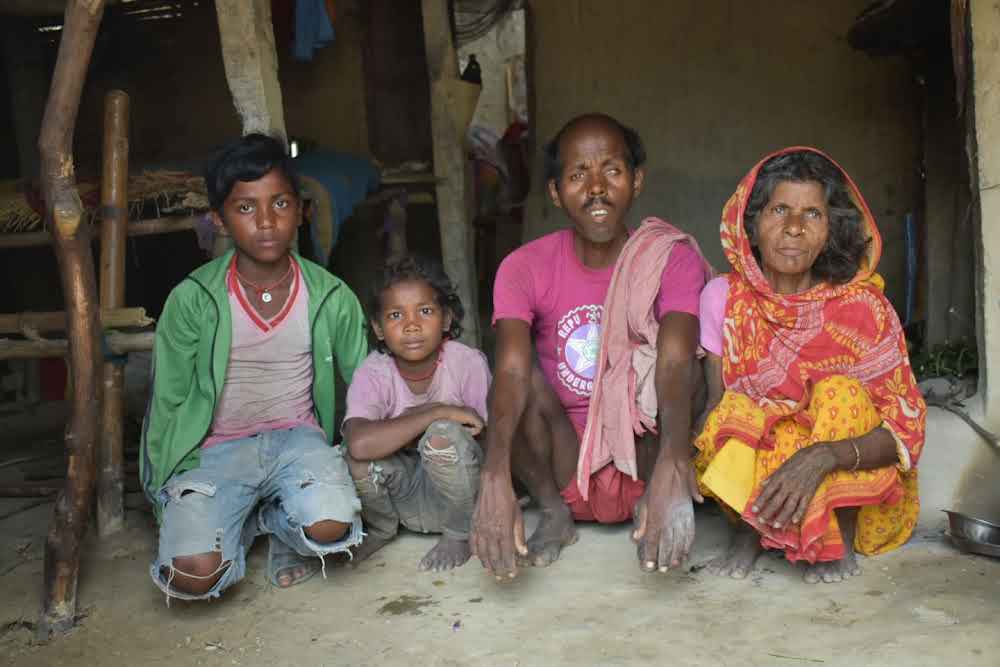Joaquim Magalhães de Castro
For the untouchable caste of southern India, known as Dalits, this Jubilee Year represents renewed hope in the recognition of their human dignity and another attempt to break the spiral of discrimination and exclusion to which they are usually subjected. Perhaps during this Jubilee period, they could try to counter the caste mentality embedded in Indian culture and seize the opportunities that may arise within society and the Church, on an equal footing with other citizens. At least, this is the opinion of Franciscan priest Fr. Nithya Sagayam OFM Cap, secretary of the Commission for Scheduled Castes and Scheduled Tribes (SCST) of the Catholic Bishops’ Council of Tamil Nadu.
In an area that encompasses 18 dioceses and 38 civil districts, the members of this religious order work hard for the development, emancipation and spiritual guidance of the Dalits, who make up 20% of the state’s population (81 million inhabitants in total) and live mainly in rural areas, with little or no access to education and social services. Dalits make up about 60% of the Catholic community in Tamil Nadu (7.5 million faithful in total) and are the poorest of the poor, the excluded, the deprived of dignity. “For this reason,” Father Nithya Sagayam emphasized in a recent interview with the Fides news agency, “it is important that the Catholic community stands by their side and walks with them on the path of hope, as the Pope wishes in this Jubilee year.” Ultimately, the aim is to awaken in the so-called outcasts “the hope of the right to a life worth living,” urging them “not to resign themselves to an existence on the margins of society and history.” Unfortunately, throughout India, a caste mentality still prevails, relegating the untouchables to “the bottom of the social ladder”.
The Dalits Commission of the Council of Bishops of Tamil Nadu has drawn up a programme with several initiatives for the Jubilee 2025. At the top of these initiatives is education and learning the English language, so that the untouchables can improve their social situation through better-paid jobs; then there are initiatives marked by seminars where they learn how to do business and start small economic activities; in addition, the aim is to directly address the phenomenon of migration, since Dalits live in rural areas and tend to migrate to urban centres.
“In this pilgrimage side by side with the most disadvantaged,” concludes Father Nithya Sagayam, “we are constantly helped by faith in Jesus Christ, who gave salvation to all, so that each one of us, Dalit or not, will always be a beloved son.”
From the south, let us travel to the north of India, where we will meet another class of society’s destitute: the farmers who produce one of the world’s most prized black teas on the plantations of Darjeeling. In this mountainous district – a strip of land that is part of the Indian state of West Bengal, nestled between Nepal, Bhutan and Bangladesh – the approximately 40,000 Catholics living there are mainly Adivasi (indigenous people) who work as collectors and processors of Camellia sinensis leaves in 87 production areas (the so-called ‘tea gardens’) spread over 19,000 hectares of land.
In the 60 parishes of the Diocese of Darjeeling, as well as in Catholic schools, the Jubilee prayer has been recited for more than six months as a form of spiritual preparation for the Holy Year. The joy of these simple and humble people, who face the Jubilee with deep devotion, is palpable. Groups of the faithful travel up to 60 kilometres to go to church to confess and take part in the Eucharist, during which they pray for the Pope and receive a plenary indulgence.
Long-standing in these picturesque districts of northern Bengal, religious orders such as the Jesuits and the Salesians are mainly involved in the areas of education and youth ministry. The locals also remember the arrival of Mother Teresa of Calcutta and her work for the destitute and abandoned elderly, which is still carried on today by the Missionary Sisters of Charity: “a mission of compassion for all, in the service of wounded and excluded humanity”. Their example is a testimony of faith that draws people to the Gospel of Christ. The Catholic community of Darjeeling still runs primary and secondary schools, and even a college. It also runs vocational training institutes, several social welfare centres, orphanages and kindergartens, and homes for the elderly and the destitute. These services rendered to humanity make the Catholic community appreciated by all, and this in a region where more than 1.5 million people of different ethnic groups and religious affiliations live together: Hindus, Nepalese, Bengalis, Bhutanese, Sikhs and Tibetans. In families, often coexist people of different faiths in an atmosphere of tolerance and mutual goodwill.


 Follow
Follow


